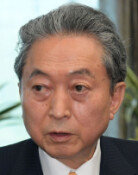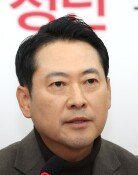Hollowness of the National Assembly and the Policies for the Peoples Livelihood Not Working
Hollowness of the National Assembly and the Policies for the Peoples Livelihood Not Working
Posted October. 14, 2003 22:41,
Because the two political parties are pitted against each other in connection with President Roh Moo-hyuns proposal of a plebiscite for a confidence evaluation, there are signs of a disappearance of the national administration, such as the distortion and delay of the governments main policies and the deliberation on the budget for the various legislation of the National Assembly.
An official of the National Assembly said anonymously, In the case of the Committee on Budget & Accounts, it is expected to start its activity from October 24, but each partys different view on the allotment of the chairman of the committee has not been decided yet, and In case of the National Assemblys limping, due to the intensive antagonism on President Rohs confidence evaluation, the deliberation on the 117.5 trillion won of budget of the year might be spun free. In case of the second revised supplementary budget for the recovery of the damage due to the typhoon Maemi, the Ministry of Finance and Economy plans to examine the topic on October 13, but it plans to adjourn after having discussions on the topic because of the insufficiency of a fixed number.
The officials of the National Assembly are concerned that for President Rohs proposal of the plebiscite on December 15, the deliberation of the bill might be delayed due to the hollowness of the National Assembly, which is because of the two political parties outside confrontation which affects the very existence of these parties, before November 27 when the formal pros and cons movement starts.
In reality, in case of the bill for the new administrative capital and the special law for the Korea-Chile Free Trade Agreement, each political party is secretly studying the expression of the voters and farmers in the Chungchong region and has not made its position clear.
President Rohs proposal of legislating the reform of the politics itself, excluding his call for a confidence evaluation, is hard to discuss because of the two political parties acute conflicts of interests on the matter, and the major constituency system and the system of prepositional representation by regional groups of the political party.
Prior to a plebiscite of a confidence evaluation, the distortion of the policies regarding the pro groups is also possible to occur. The United New Partys (UNP) increasing next years budget by three trillion won is a good example of the distortion. The UNP plans to increase the budget by issuing long-term national bonds at the first regular policy council with the government at the National Assembly on October 14. The budgetary officials of the Grand National Party (GNP) and the Millennium Democratic Party (MDP) immediately criticized, Increasing the budget without deliberation on it is the typical favoritism for luring voters.
Lawmaker Kim Keong-jae of the MDP pointed out, It will be difficult for the government to decide whether or not to send troops prior to a plebiscite of a confidence evaluation, because it could make the progressive pro-Roh groups, who concentrate after a long time, secede from the government.
Election specialists presumed that except for the formal expenses for managing a vote, 800 million won, extra several thousands of million won will be embezzled for the pros and cons movement for the confidence evaluation plebiscite, because candidates for the next years general election in April are sure to appear on the stage to use the pros and cons movement as their legal election campaign, and each party is also sure to mobilize all of its fund organizing by risking its fate.
Sung-Won Park swpark@donga.com







